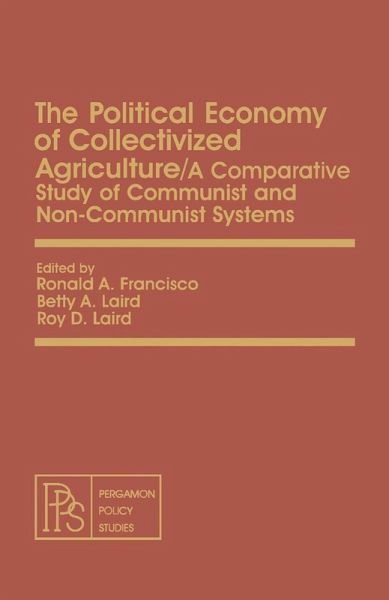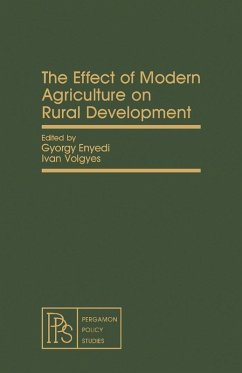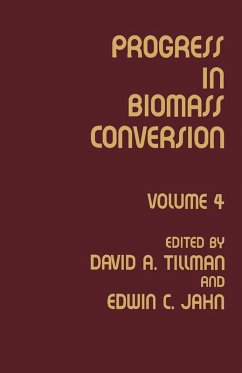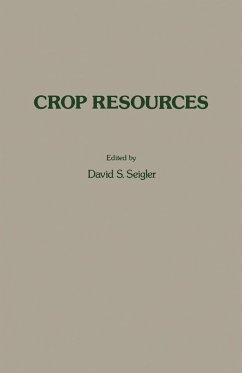
The Political Economy of Collectivized Agriculture (eBook, PDF)
A Comparative Study of Communist and Non-Communist Systems
Redaktion: Francisco, Ronald A.; Laird, Roy D.; Laird, Betty A.

PAYBACK Punkte
20 °P sammeln!
The Political Economy of Collectivized Agriculture/A Comparative Study of Communist and Non-Communist Systems assesses the political and economic impact of collectivization by surveying the experience of several nations with different forms of collective or state farming. Focusing primarily on the Council for Mutual Economic Assistance (CMEA) nations, this book addresses a number of questions, such as whether collectivized agriculture is more or less efficient than private agriculture; whether the manner in which collectivization is implemented affects its success; and whether there are social...
The Political Economy of Collectivized Agriculture/A Comparative Study of Communist and Non-Communist Systems assesses the political and economic impact of collectivization by surveying the experience of several nations with different forms of collective or state farming. Focusing primarily on the Council for Mutual Economic Assistance (CMEA) nations, this book addresses a number of questions, such as whether collectivized agriculture is more or less efficient than private agriculture; whether the manner in which collectivization is implemented affects its success; and whether there are social and political motivations that override economic considerations. This monograph is comprised of nine chapters and opens with a discussion on the advantages and disadvantages of state agriculture in the USSR, followed by an analysis of collectivized agriculture in Romania, Hungary, Czechoslovakia, German Democratic Republic, and Poland. The impact and politics of agricultural collectivization on productivity in China are then examined, paying particular attention to its advantages and drawbacks as well as the factors driving the growth of Chinese agriculture. The experience of Israel with collectivized agriculture is also considered, along with the impact of industrialization and modernization on the kibbutz and the problems associated with embourgeoisement. This text will be of interest to economists, political scientists, and policymakers concerned with agriculture.
Dieser Download kann aus rechtlichen Gründen nur mit Rechnungsadresse in A, B, BG, CY, CZ, D, DK, EW, E, FIN, F, GR, HR, H, IRL, I, LT, L, LR, M, NL, PL, P, R, S, SLO, SK ausgeliefert werden.













